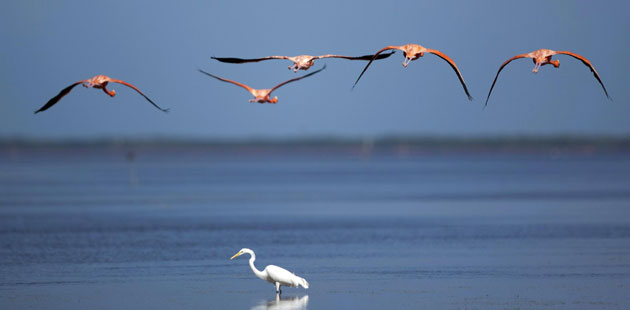US hopes to draw investment into South Sudan
Updated: 2011-12-14 08:58
(Xinhua)
|
|||||||||
WASHINGTON - The United States will host a two-day conference on South Sudan starting on Wednesday in Washington, in the hope of drawing private investment into the newest nation on earth, US officials said on Tuesday.
Rajiv Shah, administrator of the US Agency for International Development, said the International Engagement Conference on South Sudan offers an opportunity for the South Sudan government to lay out its vision for economic development and humanitarian assistance, seek "coordinated and effective partnership" from around the international community, and have a direct dialogue with the private sector both in the US and around the world to draw more investments into the country.
He told reporters that the World Bank, Britain, Norway, the European Union, the African Union and many of the regional partners will be present to "ensure that there's effective coordination in our efforts in South Sudan."
Princeton Lyman, the US special envoy for Sudan, expressed concern about security in South Sudan, saying the situation has been exacerbated by the fighting going on in Sudan's southern states of Southern Kordofan and Blue Nile.
Fighting in Southern Kordofan first erupted in early June between the Sudanese army and fighters aligned to the Sudan People 's Liberation Army, which became the regular army of South Sudan after its independence, and spilled over into nearby Blue Nile state three months later.
"Not that we think the two are going to go to war in that sense, but the conflict on the border, the clashes that take place, raise a lot of tension," he said. "And they impact on the ability of the two to negotiate other issues in oil, Abyei, etc."
According to Lyman, the government in Khartoum is wrong to say that the problem of Southern Kordofan and Blue Nile arose because of possible military support from the south.
"That's not the source of the problem," he remarked. "The source is that political issues in those two states, which were to be resolved through processes of popular consultations and negotiations, have not been resolved."
Under an agreement inked in 2005 that ended two decades of civil war between the two sides, South Sudan won independence from Sudan on July 9, but some thorny issues remain unresolved between them, including oil revenues and external debt sharing, border demarcation and the status of the oil-rich Abyei region.
As the youngest nation, South Sudan is among the poorest in the world, with a high maternal and child mortality rate, a high illiteracy rate, very limited infrastructure and an economy dependent on oil exports.











